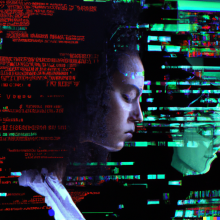Was ist IRIS3D?
"Reflecting Intelligent Systems for Diversity, Demography, and Democracy (IRIS3D)", startete im Januar 2023 mit drei neuen Forschungsgruppen, die vom Ministerium für Wissenschaft, Forschung und Kunst Baden-Württemberg gefördert werden.
Die drei Forschungsgruppen arbeiten an der Entwicklung und Durchführung neuer Forschungsprogramme, die zur Reflexion über die gesellschaftlichen Auswirkungen intelligenter Systeme im Zusammenhang mit dem Thema des Projekts beitragen.
IRIS3D wird in das Cyber Valley Ökosystem und das interdisziplinäre Stuttgart Research Focus Interchange Forum for Reflecting on Intelligent Systems (IRIS) eingebettet sein.
IRIS3D
- Project focus
-
Reflecting Intelligent Systems for Diversity, Demography, and Democracy
- Duration
-
04/2022 - 12/2026
- Funding
-
The project is funded by the Ministry of Science, Research and Arts Baden-Wuerttemberg.
Az. 33-7533-9-19/54/5
- Report by the University
IRIS3D Hauptsitz - UN32 .118
IRIS3D Teamassistenz

Simone Brandes
Teamassistenz - IRIS3D



